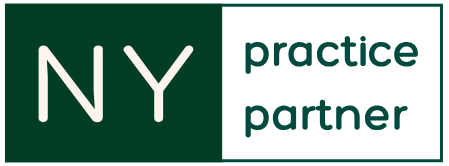In the healthcare industry, credentialing plays a crucial role in ensuring that healthcare professionals meet the necessary standards to provide safe and effective care. This process involves verifying the qualifications of medical providers, including their education, training, and experience. Understanding credentialing is essential for healthcare providers, administrators, and patients alike. In this article, we’ll explore the importance of credentialing, define what it is, discuss credentialing experience, and highlight some of the best medical credentialing companies operating throughout the United States.
What Is Credentialing in Healthcare?
Credentialing in healthcare is the process of verifying the qualifications of medical professionals. This includes checking their education, training, licenses, certifications, and work history. In my experience as an administrative assistant at a healthcare facility, I saw firsthand how critical this process is. One memorable instance involved a physician whose application raised some red flags. The credentialing team discovered discrepancies in their reported training, which could have posed serious risks to patient safety. This experience taught me the importance of thorough credentialing and the vital role it plays in maintaining the integrity of healthcare services.
Types of Credentialing
- Initial Credentialing: This process occurs when a healthcare provider first applies for privileges at a facility. It includes a thorough review of their qualifications and experience. During my time at the hospital, I helped process initial applications, which required meticulous attention to detail to ensure all credentials were legitimate.
- Re-Credentialing: This occurs periodically (usually every two to three years) to ensure that healthcare providers continue to meet necessary standards. Re-credentialing often involves performance evaluations and additional training. I often assisted in scheduling these evaluations, reinforcing the need for ongoing education and quality assurance.
- Privileging: While credentialing verifies qualifications, privileging grants permission to provide specific types of patient care based on the provider’s training and experience. I found that many healthcare professionals appreciated having the privilege process clearly explained to them, ensuring they understood the limitations of their practice.
Why Is Credentialing Important?
Credentialing is essential for several reasons, all centered around the quality and safety of healthcare services.
1. Ensures Patient Safety and Quality Care
The primary goal of credentialing is to ensure that healthcare providers are qualified to deliver care. For example, I recall a situation where a newly hired nurse, who had not yet completed the credentialing process, was nearly allowed to start working. Thanks to the diligent efforts of the credentialing team, we caught the oversight before it became a potential patient safety issue. This experience underscored how vital proper credentialing is in preventing unqualified individuals from treating patients.
2. Legal and Regulatory Compliance
Healthcare organizations must comply with various laws and regulations regarding credentialing. For example, Medicare and Medicaid require providers to be properly credentialed. Failing to meet these standards can result in legal consequences, including fines and loss of accreditation. Our facility faced scrutiny once when a provider was found lacking the necessary credentials, emphasizing the importance of adhering to regulations to avoid severe repercussions.
3. Builds Trust and Reputation
Patients are more likely to choose healthcare providers who are properly credentialed. In my interactions with patients, I often observed their concerns regarding the qualifications of their healthcare providers. When a facility emphasizes its commitment to credentialing, it builds trust with patients and enhances its reputation in the community. I remember a patient expressing relief upon learning about our thorough credentialing process, which positively impacted their experience and confidence in our care.
4. Facilitates Inter-Provider Collaboration
In today’s healthcare environment, collaboration among providers is more important than ever. While attending a workshop hosted by one of the credentialing companies, I learned how improved credentialing processes enhance communication among providers. Hearing stories from other administrators about how proper credentialing facilitated teamwork inspired me. When all providers involved in a patient’s care are properly credentialed, it leads to better coordination and ultimately improves patient outcomes.
What Is Credentialing Experience?

Credentialing experience refers to the knowledge and skills gained from working in the credentialing process. For healthcare professionals, having credentialing experience can be advantageous for career advancement.
Understanding Credentialing Experience
Credentialing experience involves various roles related to verifying and managing the credentials of healthcare providers. This includes tasks such as:
- Conducting background checks on applicants.
- Reviewing educational qualifications and licenses.
- Coordinating with regulatory bodies for compliance.
- Managing the re-credentialing process.
In my experience, developing a keen eye for detail during the verification process was invaluable. Each application was a puzzle, and piecing together the information required diligence and precision.
How Credentialing Experience Influences Hiring and Promotions
Healthcare organizations often seek candidates with credentialing experience when hiring for administrative and management roles. This experience demonstrates an understanding of the complexities involved in maintaining healthcare standards. Additionally, having credentialing experience can lead to career advancement opportunities, as organizations value professionals who can contribute to maintaining compliance and ensuring quality care. I’ve seen colleagues with credentialing experience move into leadership roles, showcasing the value of this expertise in professional growth.
Best Medical Credentialing Companies
Choosing the right medical credentialing company is crucial for healthcare organizations. Here are some of the best medical credentialing companies to consider:
1. VerityStream
Overview: VerityStream offers a comprehensive suite of credentialing solutions for healthcare organizations, including initial and ongoing credentialing, privileging, and compliance management.
Strengths:
- User-friendly software platform.
- Strong customer support.
- Integration with other healthcare systems.
2. Cactus Software
Overview: Cactus Software provides cloud-based credentialing solutions tailored for healthcare providers. Their services cover everything from credentialing to privileging and enrollment.
Strengths:
- Flexible and customizable solutions.
- Automated processes to save time.
- Detailed reporting features.
3. MD Tech
Overview: MD Tech specializes in credentialing and compliance services for medical practices and healthcare organizations. They offer end-to-end credentialing services.
Strengths:
- Personalized support for clients.
- Extensive experience in the field.
- Focus on compliance and risk management.
4. MedTrainer
Overview: MedTrainer provides an all-in-one solution for credentialing, compliance, and training for healthcare organizations, designed to streamline the credentialing process.
Strengths:
- Comprehensive training resources.
- User-friendly interface.
- Ability to manage multiple providers efficiently.
5. CredentialMyDoc
Overview: CredentialMyDoc offers credentialing and enrollment services designed to simplify the process for healthcare providers, focusing on delivering timely and accurate results.
Strengths:
- Efficient document management system.
- Strong emphasis on client satisfaction.
- Competitive pricing for services.
6. NYPracticePartner
Overview: NYPracticePartner specializes in credentialing services for healthcare providers across the United States. They focus on ensuring compliance with state regulations and offer comprehensive support throughout the credentialing process.
Strengths:
- Expertise in nationwide healthcare regulations.
- Personalized service tailored to client needs.
- Streamlined processes that save time for providers.
7. HealthPro Heritage
Overview: HealthPro Heritage focuses on providing comprehensive credentialing services, particularly for rehabilitation and therapy providers, emphasizing personalized service.
Strengths:
- Specialized expertise in rehabilitation credentialing.
- Commitment to compliance and quality care.
- Strong client relationships.
Conclusion
Credentialing is a fundamental aspect of healthcare that ensures the safety and quality of care provided to patients. By verifying the qualifications of healthcare providers, credentialing protects both patients and healthcare organizations. For professionals, understanding credentialing can also help advance careers within the healthcare industry.
When selecting a medical credentialing company, it’s essential to consider factors like experience, technology, and support. The companies listed above are among the best in the industry, offering reliable solutions for healthcare organizations. By investing in proper credentialing, healthcare facilities can build trust, comply with regulations, and ultimately improve patient care.
If you’re looking for more information or need assistance with the credentialing process, consider reaching out to one of the top companies mentioned for medical credentialing services. They can help guide you through the complexities of credentialing and ensure your organization meets the standards for quality care. A credentialing specialist is crucial in healthcare, managing the process of verifying providers’ qualifications to ensure they meet industry standards. Learn more about what a credentialing specialist does and why their role is essential for maintaining quality care.








